“Masc 4 masc”. “No fems”. “Discreet only”. These are phrases you’ll see a lot on hookup apps like Grindr and Scruff. And while most users will chalk it up to a matter of “preference”, some argue that this aversion to outward displays of queerness is a symptom of a much larger problem: internalized homophobia.
But what is internalized homophobia exactly? Why do queer people experience it? And how can you overcome it?
Related: Colton Underwood’s Netflix series about his coming out is being released this week
What Is Internalized Homophobia?
Internalized homophobia happens when bisexual men and women, lesbians, and gay men experience negative social attitudes and beliefs towards gay people and the gay community. In turn, they internalize those and develop feelings of self-hatred. This usually manifests as homophobic behavior towards themselves or other people in their community.
Never Miss a Beat
Subscribe to our newsletter to stay ahead of the latest LGBTQ+ political news and insights.
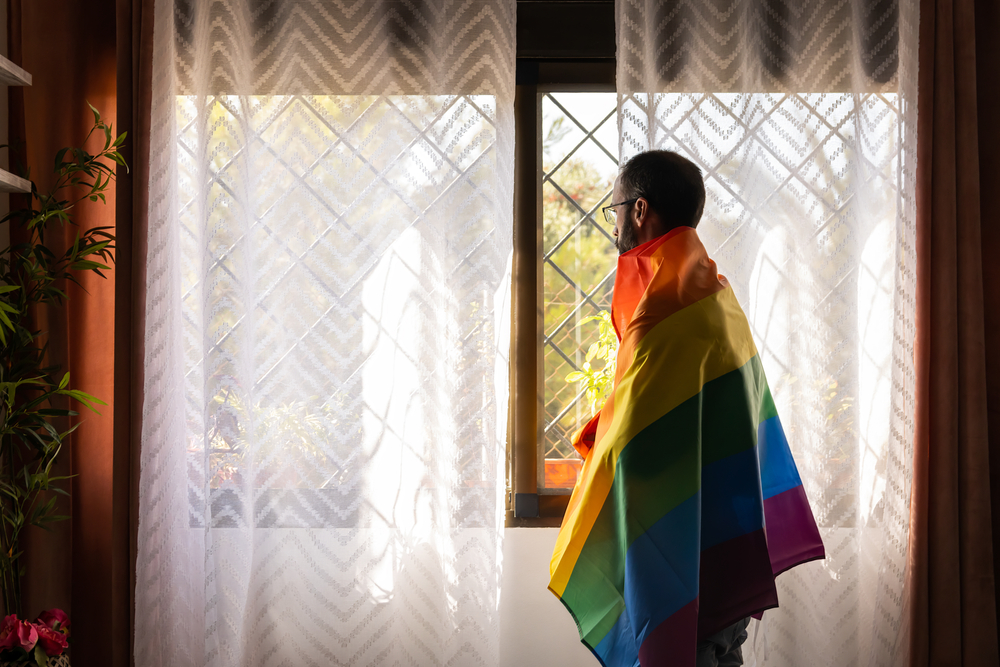
Other Terms For Internalized Homophobia
Not everyone agrees with the term “homophobia” to describe these perceptions and negative attitudes about queer people. After all, homophobia isn’t a phobia or fear per se but rather a pervasive set of biases, stereotypes, and negative attitudes towards queer people. As such, some folks prefer to use different terms to describe internalized homophobia, including:
- Internalized homonegativity
- Internalized sexual stigma
- Heterosexism
- Sexual prejudice
- Antigay bias
- Internalized oppression
What Causes Internalized Homophobia?
We live in a heteronormative society. Heteronormativity is the assumption that everyone is or should be heterosexual. This assumption leads to a prevailing stigma surrounding those who challenge or go against what is considered “the norm”.
As such, most of us are socialized from a young age into thinking that sexual minorities (anyone who isn’t cis or heterosexual) and anything related to them are strange, “abnormal”, or even morally wrong – and that these people should be avoided or made to feel ashamed for their same-sex attraction and sexual behavior.
Here are some of the biggest factors that contribute to internalized oppression:
Growing Up Around Homophobic Religious Conservatives
Most religious institutions condemn same-sex sexual behaviors, refuse LGBTQ people from leadership positions, and do not recognize same-sex marriage as a legitimate union. Some religious groups will also offer conversion therapy camps to those who want to rid themselves of their same-sex attractions.
However, studies have shown that not only is conversion therapy ineffective, it is also deeply harmful and can lead participants to experience psychological distress, depression, anxiety, and even suicidal tendencies. According to a study on religious affiliation and internalized homophobia in bisexuals, lesbians, and gay men, exposure to “non-affirming religion” is associated with higher internalized homophobia.
Lack of LGBTQ representation
You’ll likely have heard that representation matters, whether it is an increased representation of people of color in films and television, or more positive portrayals of LGBTQ+ people in the media.
But why does representation matter? In a piece for Psychology Today, Dr. Jennifer O’Brien notes that when LGBTQ people see themselves represented in media, it can “foster a greater sense of affirmation of their identity” and can boost positive feelings of self-worth. On the other hand, when you don’t have LGBTQ role models you can look up to, or if you don’t see yourself in the media you consume, you can develop a sense that you are “invisible”, that you “don’t exist and you don’t matter”, or that there is something wrong with you.
Having A Limited Support System
Because an LGBTQ person is more likely to become a socially stigmatized person, it is important for them to have healthy relationships and support from friends and family. Without proper support, bisexual, lesbian, and gay people will have a harder time trying to overcome personal shame.
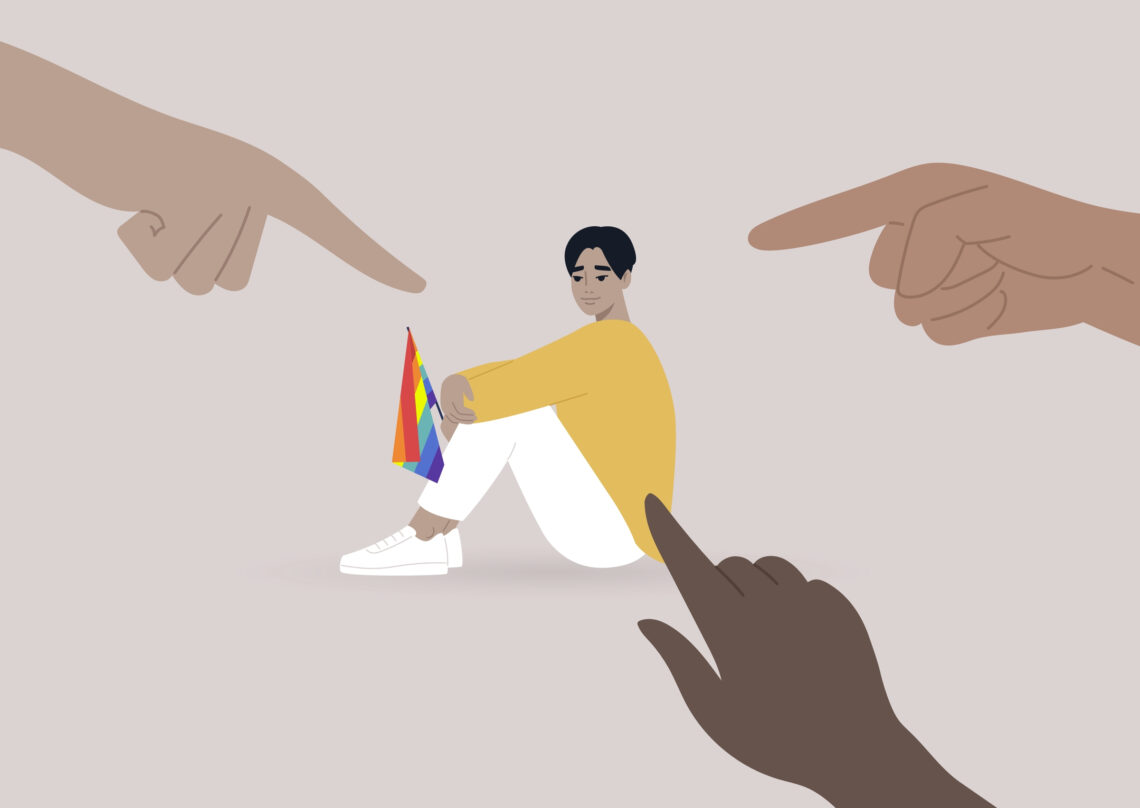
What Does Internalized Homophobia Look Like?
Here are some examples of how internalized homophobia can manifest in gay and bisexual men, based on the 1996 book Pink Therapy:
- You deny your sexual orientation or sexual identity to yourself and to other people.
- You have a very poor self-regard and feel like you aren’t “good enough” for the people you respect and admire.
- You feel like you can resist your same-sex desires and change yourself to become a completely heterosexual person.
- You can be obsessive about “passing ” as straight, believe that those who pass are better than those who are “obvious”, and monitor every aspect of your beliefs, behaviors, mannerisms, and language to prevent being “found out”.
- You attempt to distance yourself from LGBTQ people who are out and who are effeminate.
- You have very few interpersonal relationships with LGBTQ people, wanting no personal or social involvement with them.
- You attempt to overachieve because you believe that LGBTQ people need to prove their worth in society.
- You’ve experienced depression and anxiety from your shame.
- You resist your sexual feelings to the point where you end up engaging in unsafe sexual practices, such as having sex with people of the same sex without protecting yourself or learning their HIV status.
- You reinforce certain stereotypes about LGBTQ people to feel superior to heterosexuals (e.g. you believe that “gay men have a better fashion sense than straight men”).
- You tend to be attracted to unavailable and straight men, perhaps out of a deep-seated fear of pursuing a stable relationship.
- You prefer short-term relationships and avoid commitment.
Internalized Homophobia Scale
If you’re looking for a way to measure internalized homophobia or understand the levels of internalized homophobia, you can look into one a handful of scales developed by psychologists.
One commonly used scale is the IHP scale, which was developed by John Martin and Laura Dean in 1995. Here is the “Women’s Version” of the IHP:
- I have tried to stop being attracted to women in general.
- If someone offered me the chance to be completely heterosexual, I would accept the chance.
- I wish I weren’t lesbian/bisexual.
- I feel that being lesbian/bisexual is a personal shortcoming for me.
- I would like to get professional help to change my sexual orientation from lesbian/bisexual to straight.
- I have tried to become more sexually attracted to men.
- I often feel it best to avoid personal or social involvement with other lesbian/bisexual women.
- I feel alienated from myself because of being lesbian/bisexual.
- I wish that I could develop more erotic feelings about men.
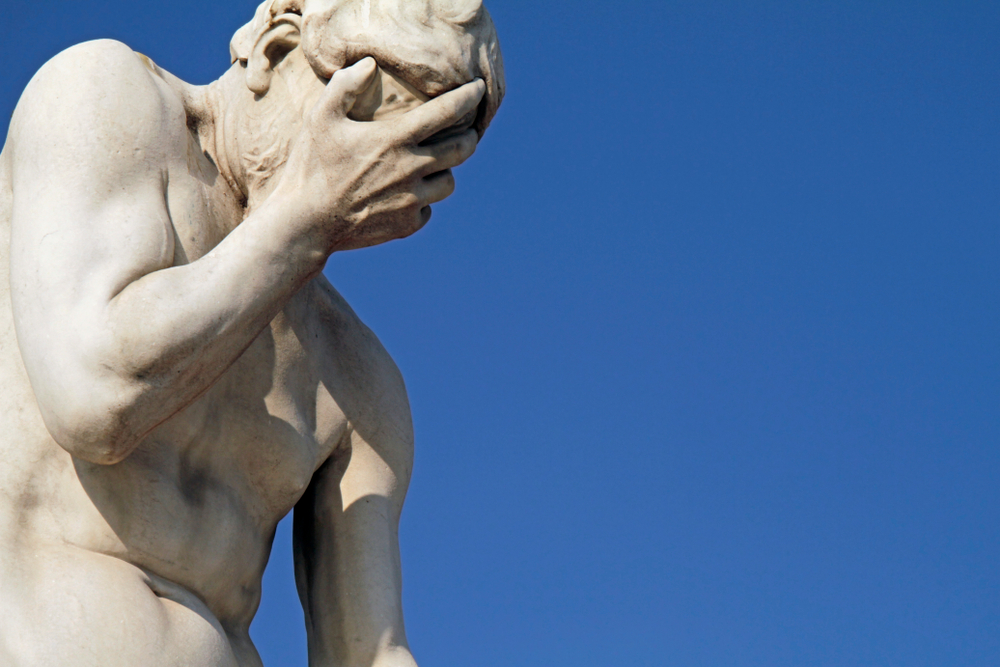
How Does Internalized Homophobia Affect LGBTQ People?
Internalized homophobia can impact LGBTQ in a lot of different ways, which is what makes it so concerning. Here are some ways that internalized homonegativity can affect queer people:
Mental Health Issues
LGBTQ youth are more likely to be bullied than straight, cisgender youth. They are also more likely to have attempted self-harm and suicide than their peers. Rates of depression, anxiety, substance abuse, and other mental health problems are also higher among gay men and women than their heterosexual peers.
Relationship Issues
According to a 2009 study, internalized heterosexism resulted in lower quality relationships among lesbian women, gay men, and bisexuals.
This stigmatization of non-heterosexual identities can be seen and felt in places where we are supposed to feel safe and accepted, from home to school to our close friend groups to the workplace. When we feel that we are unable to trust those we are close to, we can develop an inability to form and maintain lasting and healthy relationships.
Higher Risk For STIs
STIs and HIV are among the leading health issues affecting lesbians and gay men. There is a negative stereotype that sexual minority adults like gay and bisexual men are more “promiscuous” and thus more susceptible to getting an STI.
However, many fail to realize that the shame and stigma surrounding queer sexuality, anal sex, STIs, and HIV in general lead many people to keep their status a secret. Because of this, LGBTQ people become more susceptible to getting sick and don’t get the care that they need.
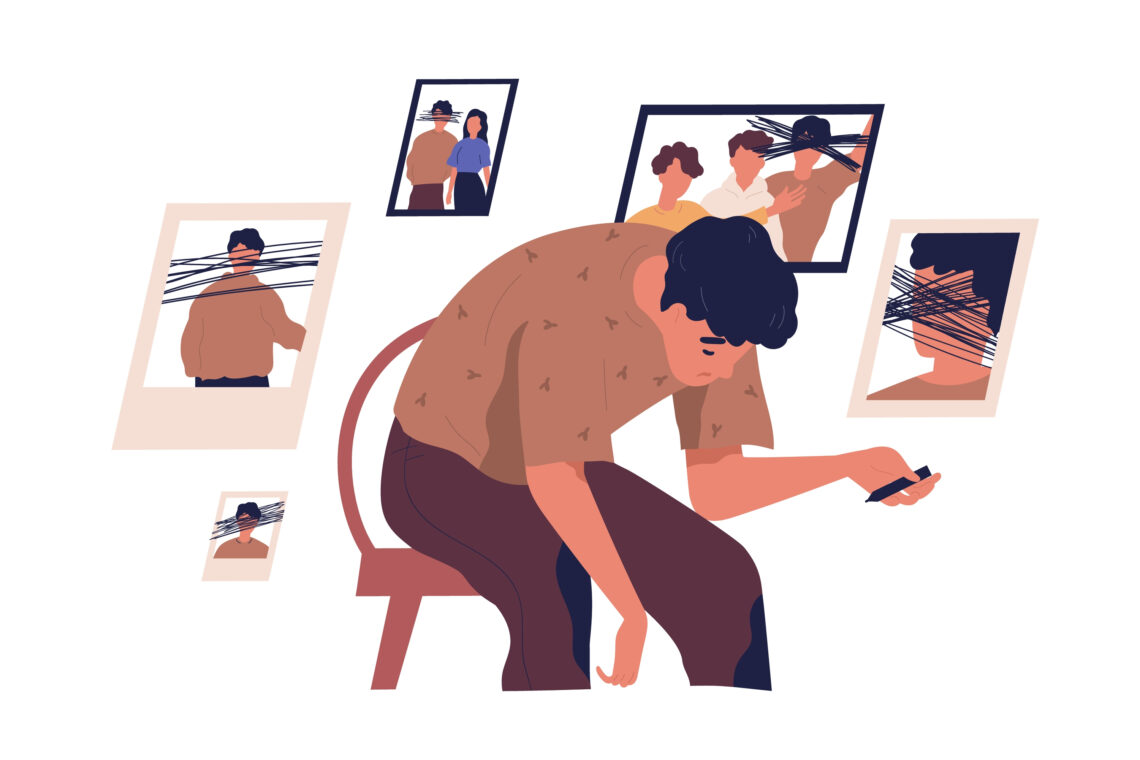
How To Deal With Internalized Homophobia
So with all that being said, how can we combat internalized homophobia and the cultural and institutionalized heterosexism from which it stems?
According to Daniel Lyons in a piece for Psychology Today, the first step in dismantling the “deeply entrenched system homophobia” is acknowledging that everyone, regardless of race, sexual orientation, gender, or socioeconomic status, is capable of thinking or acting in a homophobic way.
Today, more and more people are challenging jokes and stereotypes about LGBTQ people, including ones that are shared by those in the community.
For example, drag queen Kim Chi performed the original song “Fat, Femme, and Asian” on the finale of her season of RuPaul’s Drag Race. The song is a biting commentary on internalized homophobia in the gay community and plays on the aforementioned “preferences” that gay men will use as an excuse for discriminating against more effeminate members of the community.
Filmmaker Jamal Lewis did the same thing, but a documentary rather than a song. Entitled No Fats, No Femmes, Lewis’ film features five black people of various backgrounds as they discuss the ways that desire among queer black people can be rooted in “problematic conceptions of different identities”.
Related: Did homophobia lead Aaron Hernandez to murder?
Conclusion
Internalized homophobia is a systemic problem that runs deep – a symptom of the heteronormative society we live in. But it doesn’t have to keep affecting us. We just need to learn how to recognize the signs and commit to uplifting each other.
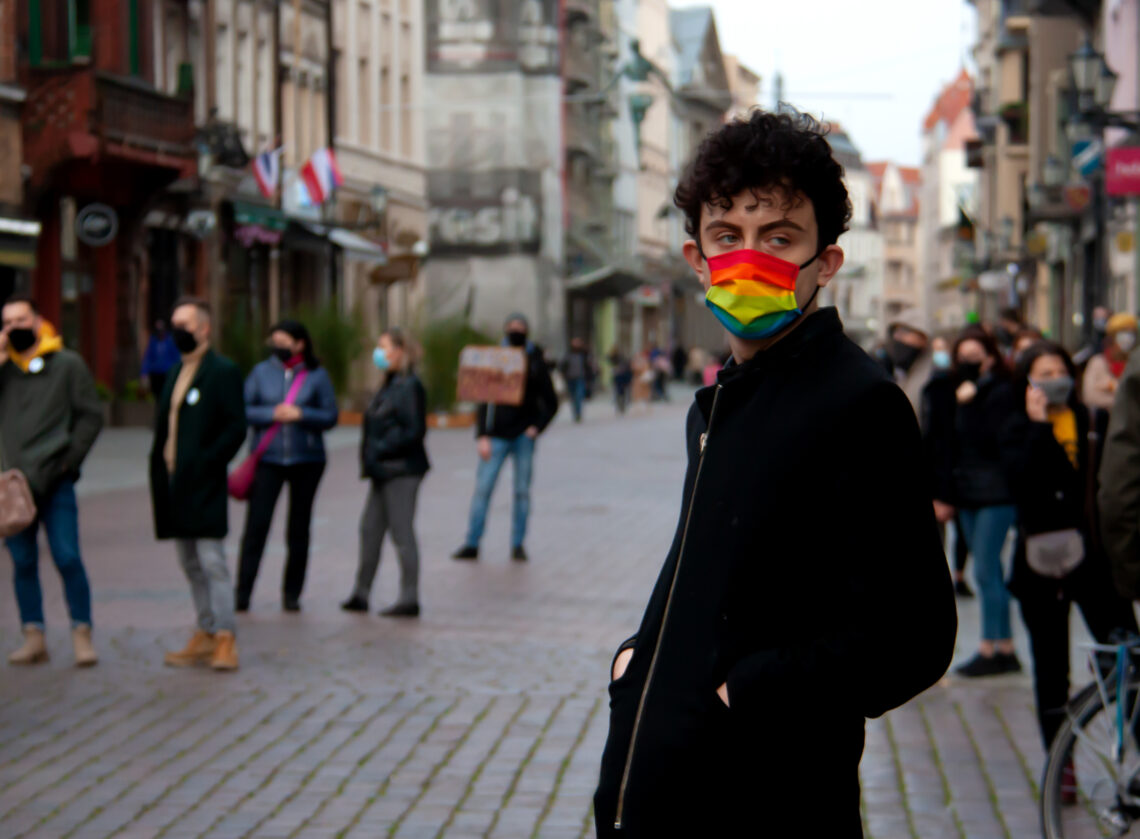
Don't forget to share:













